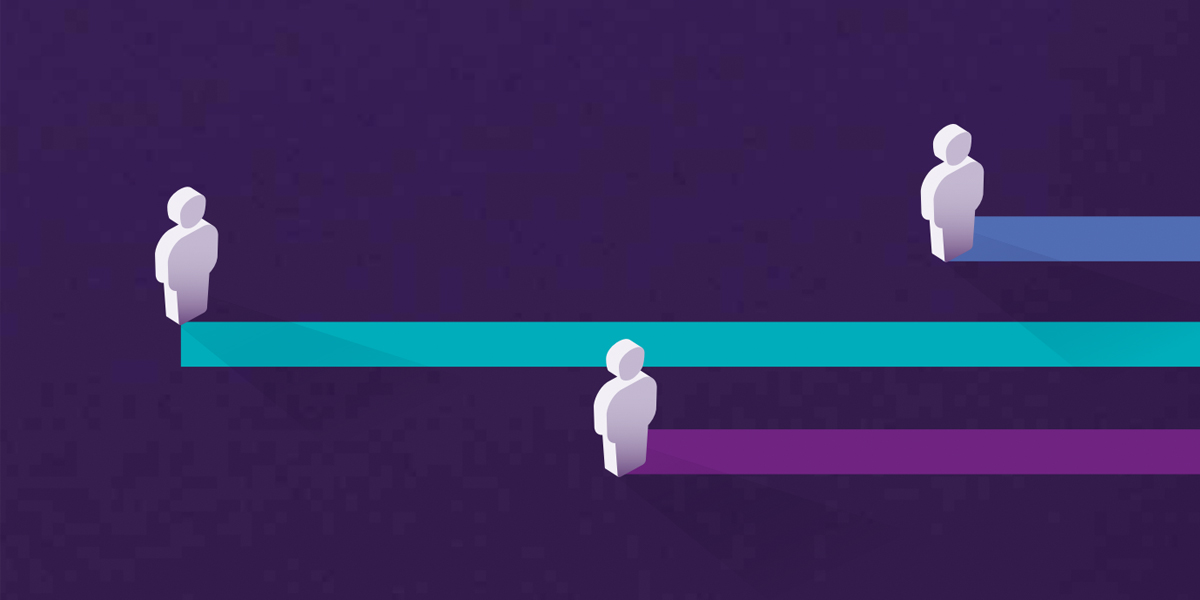Raising vital awareness about entrepreneurs’ mental health

To coincide with World Mental Health Day, the 100 Stories of Growth campaign is raising important awareness about entrepreneurs’ mental health and wellbeing through our latest research findings.
Divorce, lack of complete self-worth, and crying on the stairs in abject mental exhaustion. These are some heartbreaking consequences for entrepreneurs who are running a fast-growth business.
Some of you have been directly affected by the issues while others haven’t been impacted thankfully. But chances are you know someone who has. We’d like to thank everyone for helping us to lift the veil on mental health and wellbeing among entrepreneurs. We hope more debate will in turn help to create a meaningful and supportive forum for all.
We believe that everyone in the SME community in the UK shares a duty of care to help all of our friends and colleagues through what can be some of the darkest days of running a business. We hear all too often about people who believed they had to suffer in silence, but with mutual support and understanding, we can change things for the better.
Mental health: open for discussion
The 100 Stories of Growth campaign is supported by a great group of lead partners and supporters. Their concerted focus is helping to place entrepreneurs’ mental health and wellbeing at the top of the agenda.
Nick Travis, a partner at Smith & Williamson Investment Management, says that entrepreneurship is often misunderstood as a glamorous and exciting adventure that leads to “untold riches”.
“In reality, the fruits of success have almost without exception been achieved through incredible hard work, profound sacrifice and some degree of luck,” he says. “Most do not make it, and even those that do will emerge from their journey scarred mentally from the battle.”
We should never stop celebrating success but it is equally important that we recognise and openly discuss the severe mental pressure that every entrepreneur endures and the effect that can have on them.
Nick Travis, Smith & Williamson
Emma-Jane Pack, managing director of The Supper Club, agrees that building a successful business is very hard work and can be a significant strain on your mental health and personal life.
“At The Supper Club, we often discuss ways that founders can strike a balance to ensure they do not get burnt out,” she says. “Remember that you can learn a lot from fellow entrepreneurs and business leaders about managing a work-life balance, all you have to do is ask them.”
Investors: wellbeing champions?
Today we shine a light on the SME investment market. It has gone a long way to freeing up the flow of capital to high-growth UK companies following the access to finance debate in the UK. But on top of the intense daily grind of growing a business, we believe that more capital in the system has placed fresh pressures on entrepreneurs.
Many company founders are raising capital before they’ve built up resilience that comes with experience. Others are raising more capital and taking on the added stress and burden that come with it.
The whole of the SME investment market needs to take stock of how it is supporting its investee companies, placing people and profits on an equal footing. That way, this approach can help people avoid losing money and damaging their mental health.
53% of founders say that building their business has been one of the toughest times of their lives.
Guy Tolhurst, managing director of Intelligent Partnership, explains why he launched the 100 Stories of Growth campaign with fellow entrepreneurs in mind: “I want to help other people fully understand the journey, and minimise the collateral damage to their lives and the loved ones of entrepreneurs.”
Do anything you love for more than 10 years and you might expect to have a few scars to show for it. Despite the many powerful learnings and rewarding highs, building a business has taken its toll on every aspect of my personal and professional life and in turn, my mental and physical health.
Guy Tolhurst, Intelligent Partnership
Research insight: mental health uncovered
Founders of some of the UK’s top high-growth businesses have revealed the personal toll that building a successful company has had on their mental health.
Many individuals have had to battle with isolation, betrayal, and emotional and mental scarring. Others have shared accounts of bankruptcy, mental breakdown and burnout.
High-growth and scale-up companies typically exceed 20% year-on-year staff and turnover increases,[1] and founders of small and medium-sized enterprises are often celebrated as UK growth heroes.
But some feel less than heroic in reality. Our research shows that more than half (53%) of founders say that building their business has been one of the toughest times of their lives.[2] And more than two-fifths (45%) say they have felt under constant, extreme pressure.
Suffering in silence
A staggering quarter (25%) of entrepreneurs surveyed reveal that their mental or emotional health has been negatively affected, but they’ve “suffered in silence”.
Many have avoided sharing their mental health status or wellbeing concerns with the people closest to them in life. Nearly one in four (22%) of them say that they were “feeling like a burden” on their friends and family, so compelling founders to remain silent and avoid sharing their worries with loved ones.
A smaller but not insignificant proportion (8%) says that they resorted to seeking medical advice due to the notable impact on their mental health.
25% of the entrepreneurs say their mental or emotional health has been negatively affected but they’ve suffered in silence.
Darkest hours: a catalogue of despair
During our mental health and wellbeing research study conducted in late September and early October, we asked entrepreneurs if they’ve had dark hours while they have been focused on growing their companies.
Many founders have been extremely candid and brave about communicating some of the toughest experiences that they have faced. Here is a small sample:
“I came precariously close to running out of cash and was on a countdown to collapse.”
“Completely alone, without anyone to speak to about my feelings as my professional and personal issues became so intertwined.”
“Sleepless nights. My hair started to go dull and dry. There wasn’t enough time with kids and my marriage fell apart.”
“It creates a lot of stress that cannot be relieved very easily, especially as often there is a sense that I have chosen this life.”
“Brink of divorce, destitution and helplessness. No self-worth.”
“My business partner wanted me to buy him out as we’d had a terrible year and he felt under threat. At the same time, my mother was on life support and I’d recently discovered that my father had sexually abused both my sisters.”
“I was burnt out for years, barely able to function, scared and alone.”
“I was on the brink. I just wanted to run away.”
“No one around me seemed bothered that I was silently struggling with my world, yet I knew that if I ‘went down’ they would all be brought down with me.”
“Mentally exhausted. Crying on kitchen steps. Saying to my wife that if I die, please tell the children how hard I worked.”
Michelle Morgan, founder of the Pjoys fashion pyjama brand, shares her story of mental and physical burnout. In her inspirational story, she tells us how she overcame the “evil twins” of anxiety and depression to flourish on her entrepreneurial journey. [Read the Pjoys story here]
What would have helped founders?
Hindsight lets us assess what would have been helpful. It also helps the entrepreneur community to learn from experience and prepare for the future.
Out of any single response in our research, empathy and understanding are the key support mechanisms that founders say they would have benefited most from. Nearly two-thirds (65%) of them say that simply knowing that others were going through the same experience, and being able to talk to them, would have been beneficial.
Continuing the theme of peer support, well over half (55%) say that connecting with a “buddy or another experienced founder” would have been supportive. And 47% say that sessions with an external mentor would have been beneficial.
26% of founders would like to see more support from the investment community.
Don’t lose it: look for support
Looking forward, we asked founders to tell us where they would like to see more support coming from to help them combat their mental health and wellbeing concerns.
Our research shows that 15% of respondents would still like to deal with their mental health and wellbeing without external support. And a slightly higher number (16%) would like to see more support from their professional services providers.
However, more than a quarter (26%) of founders would like to see more support from the investment community. This is the single highest response to this question.
We believe that a constructive way forward would be for more in the investment industry to embrace a ‘mindful investor’ culture. We would like to see more commitment to mental health and wellbeing, where investors provide support and guidance to entrepreneurs about how to find help and treatment.
Investors have a vested interest in their founders and CEOs – a happy business leader is more likely to excel in growing their business.
If you are an entrepreneur and you would like to share your views on mental health and wellbeing, you can take part in our confidential research.
The 100 Stories of Growth campaign will be producing a full report of our research findings later in October. This will cover our key research findings about emotional, human, financial and intellectual capital at work today in the SME community.
Join the 100 Stories of Growth campaign as we continue to explore how fast-growth companies are using financial, human, intellectual and emotional capital to successfully scale.
Follow us on Twitter to be the first to find out new and inspiring stories @100stories
[1] Research among 250 founders of businesses by Intelligent Partnership for 100 Stories of Growth -Capital at Work campaign, January – October 2018.
[2] Research among 89 founders of businesses by Intelligent Partnership for 100 Stories of Growth – Capital at Work campaign, October 2018.







